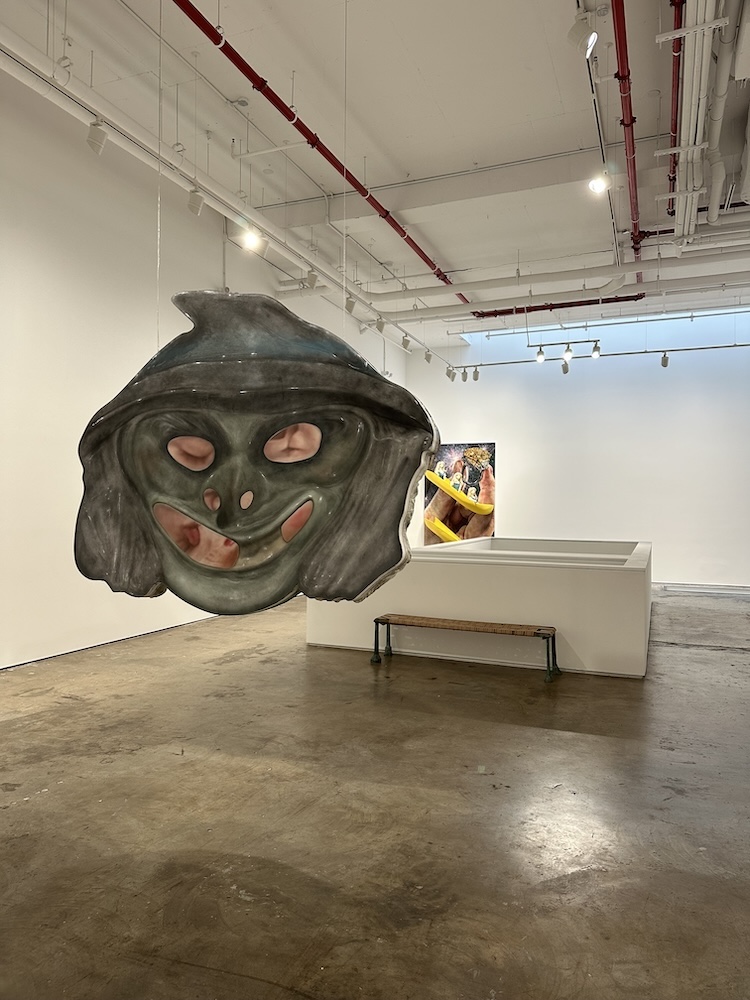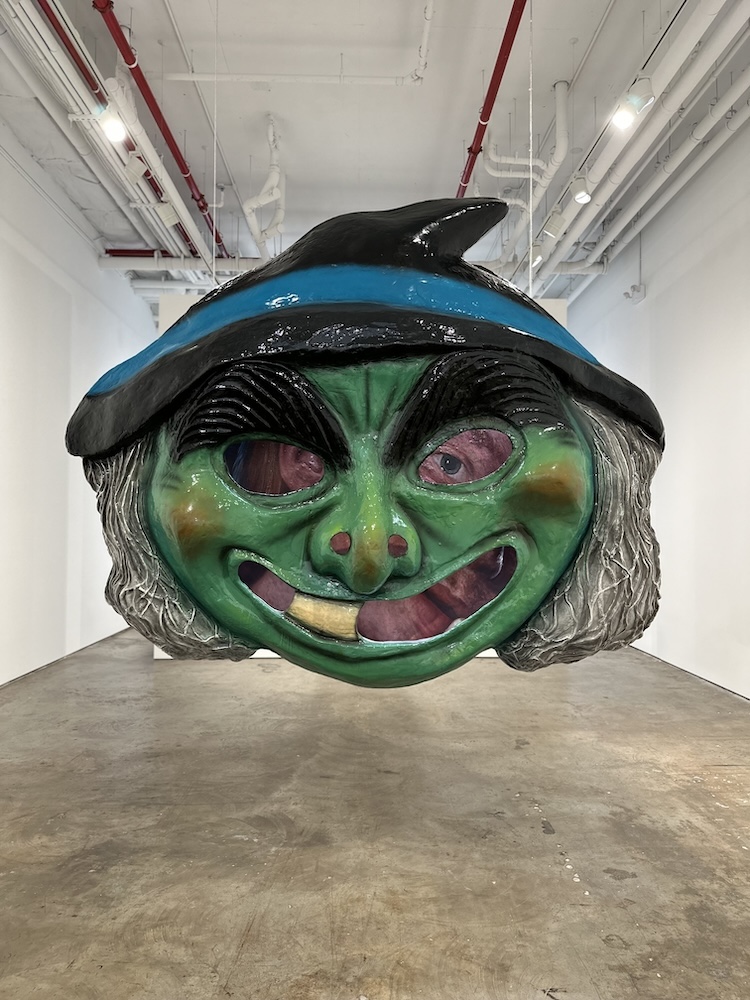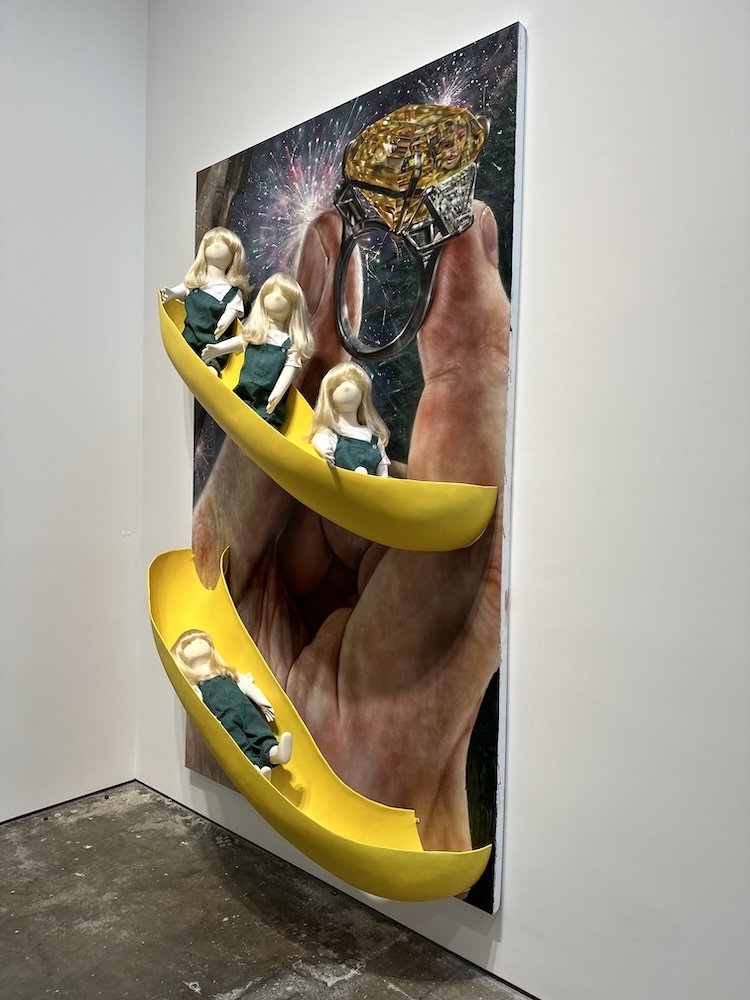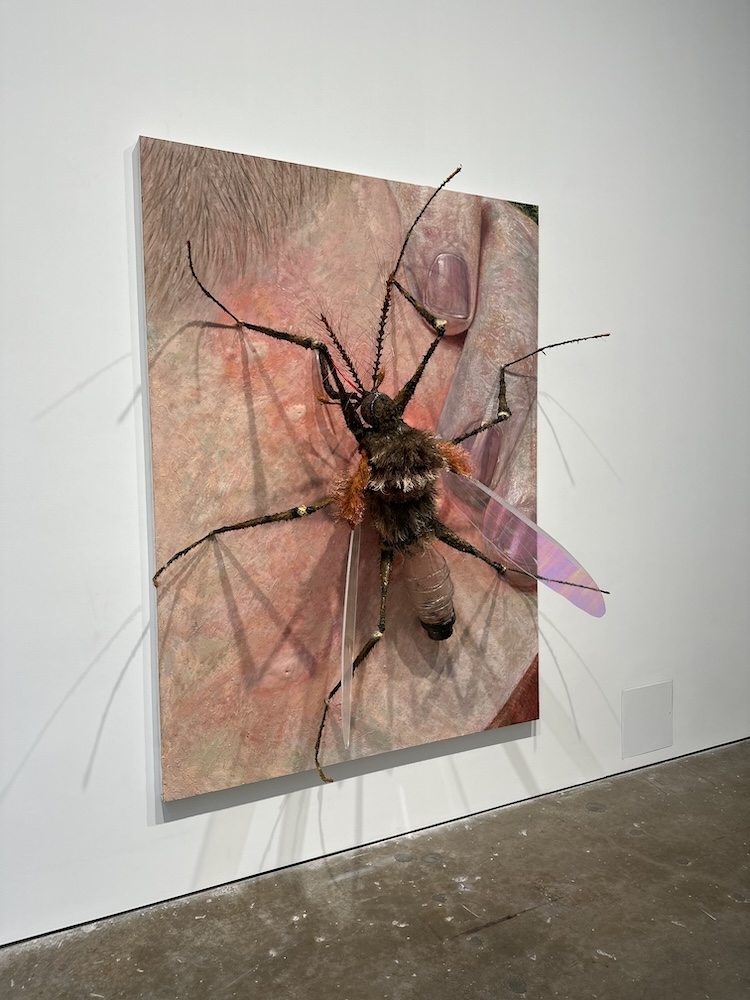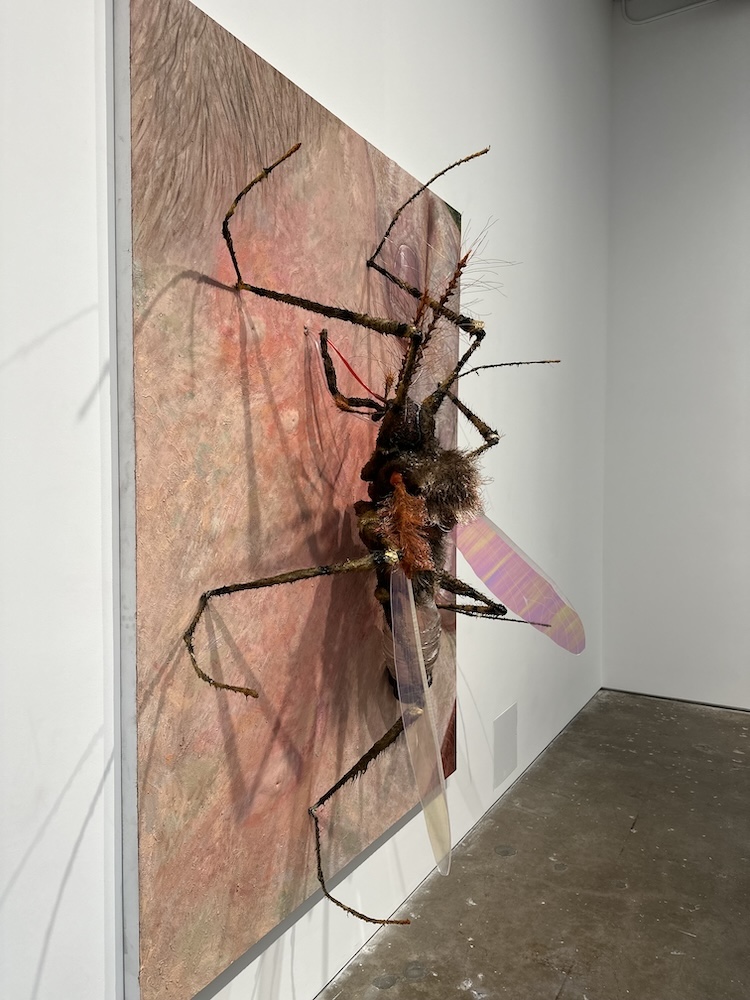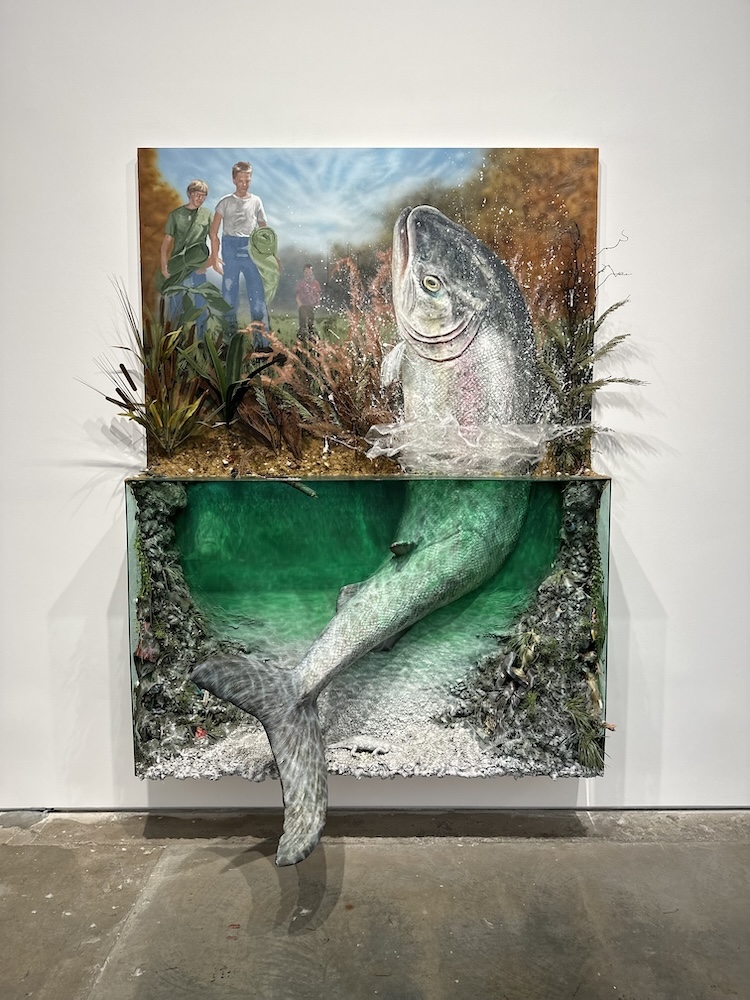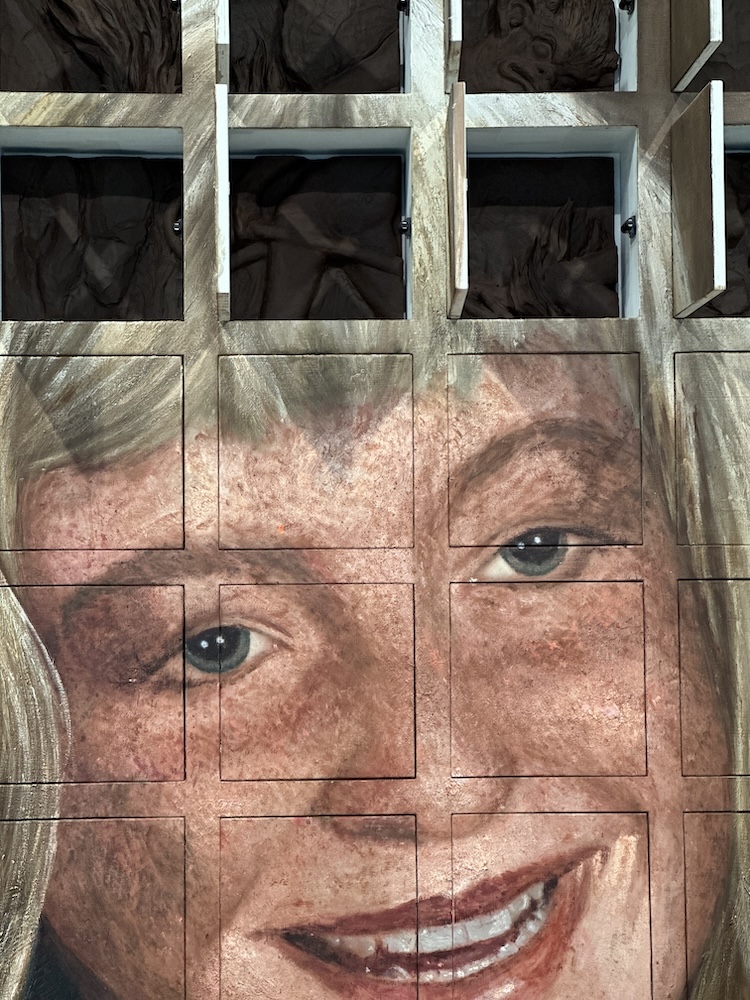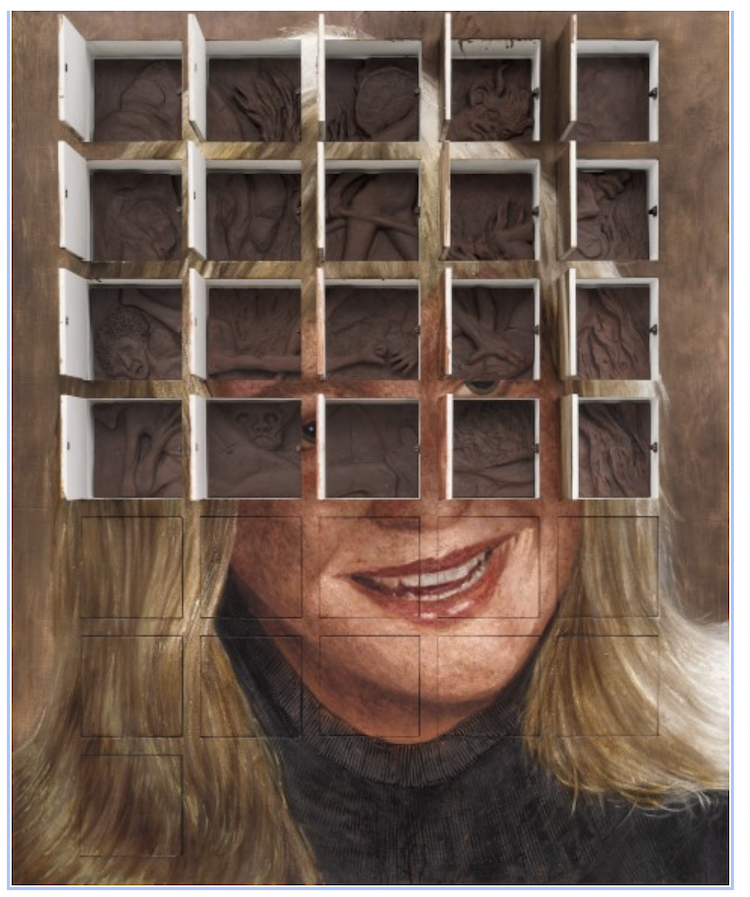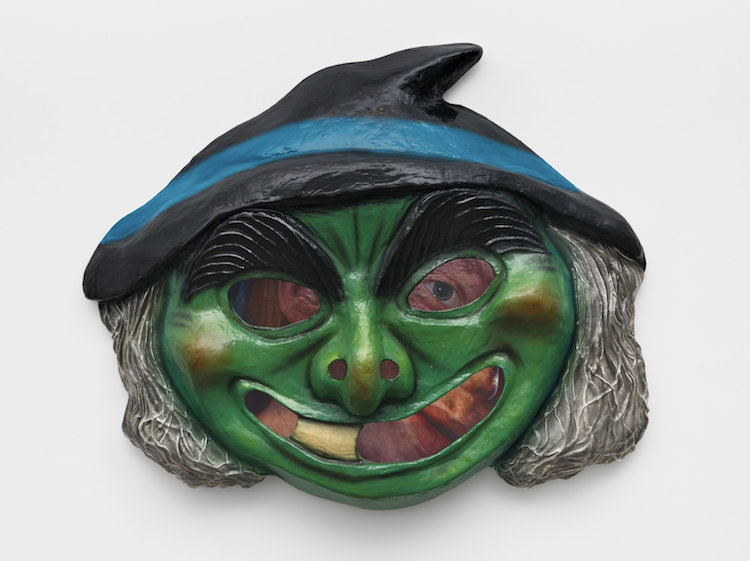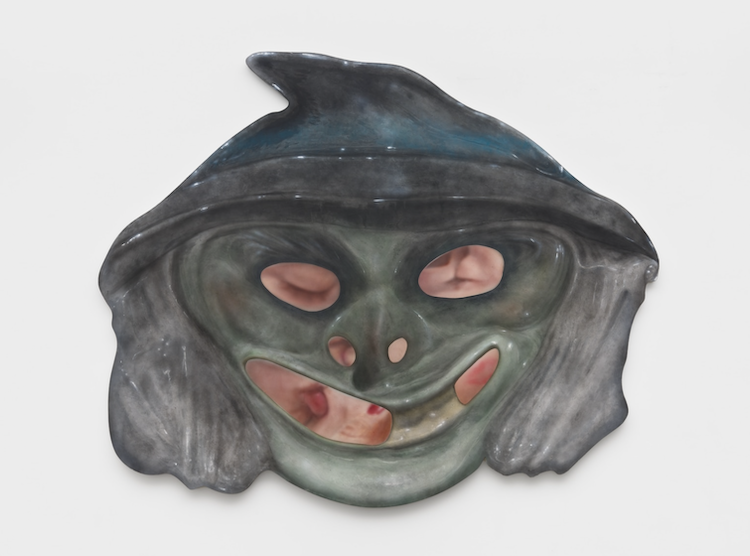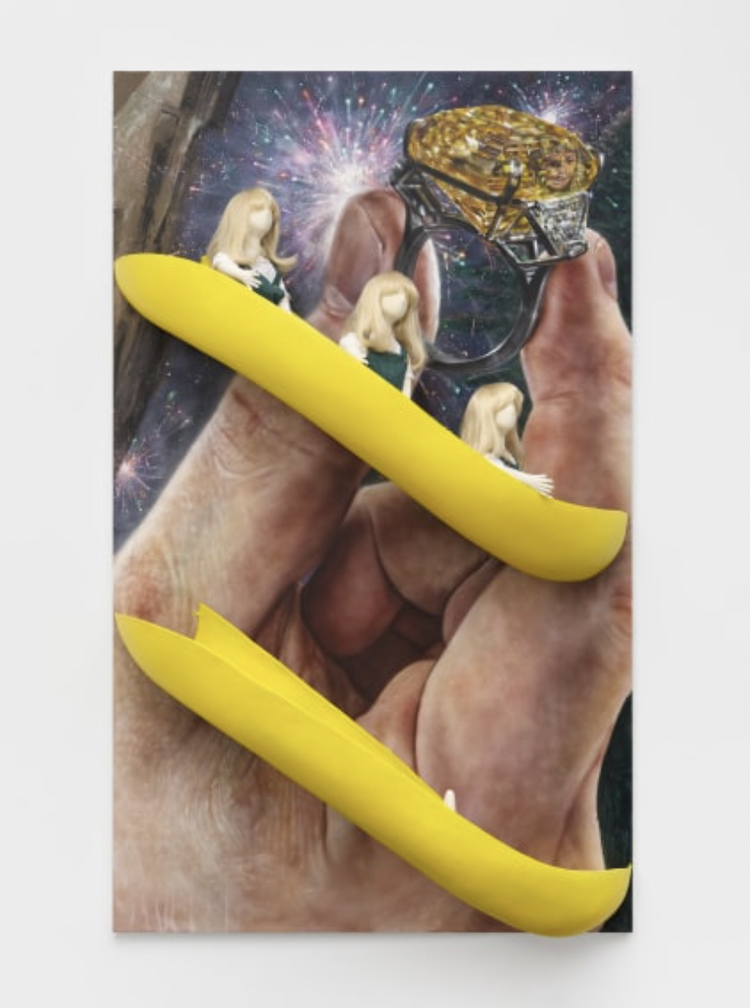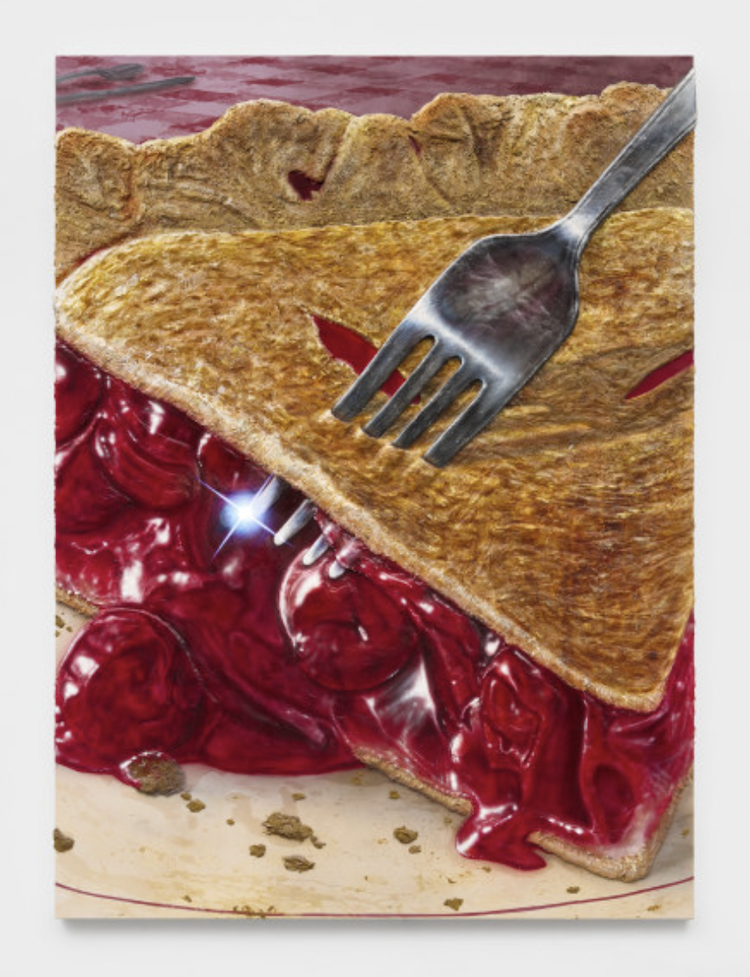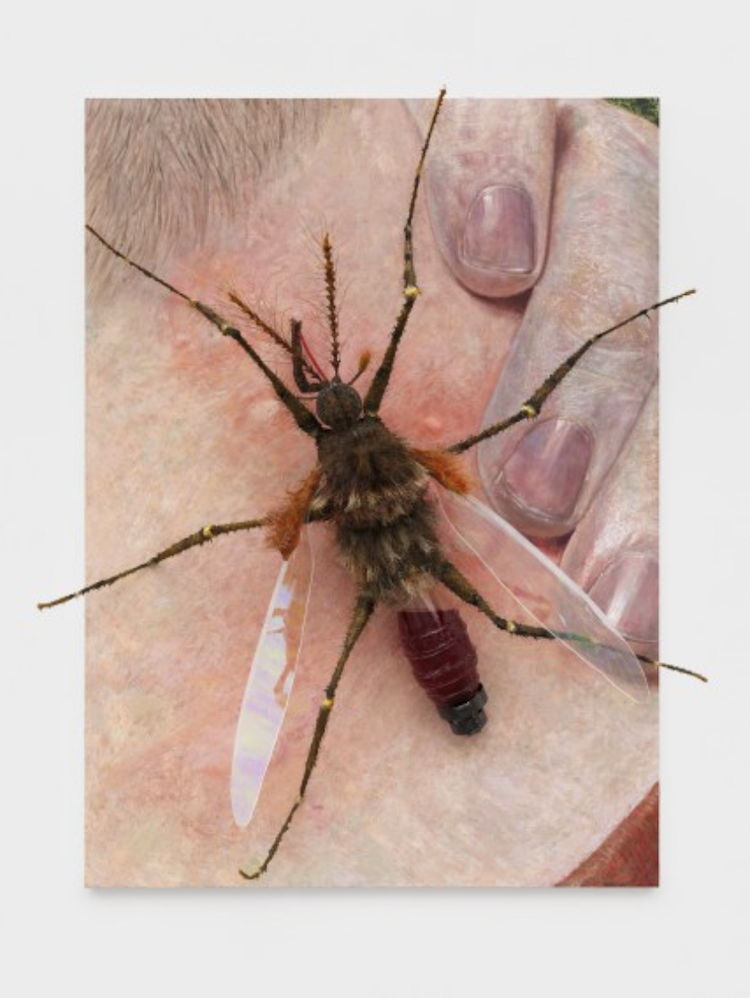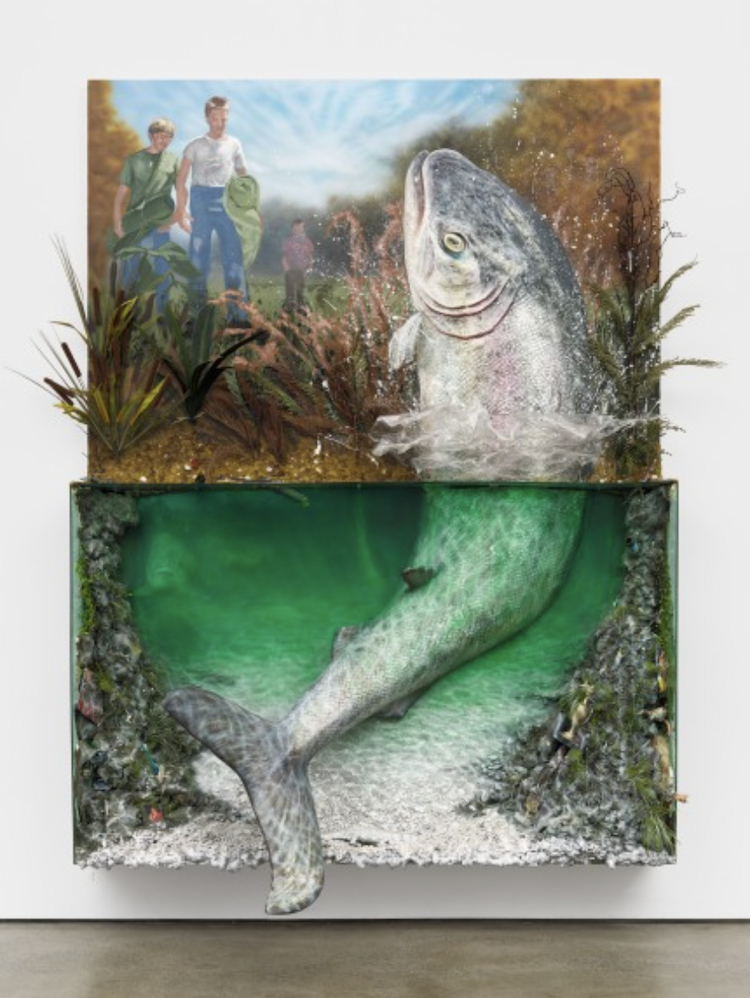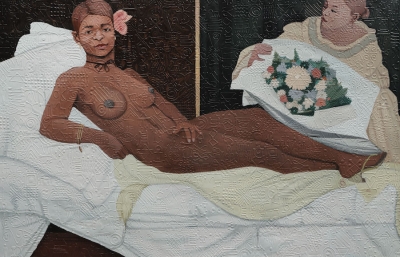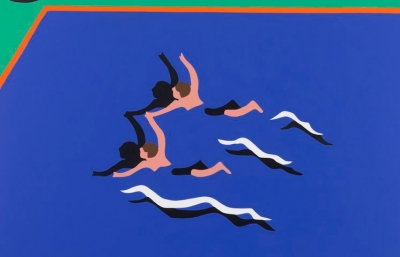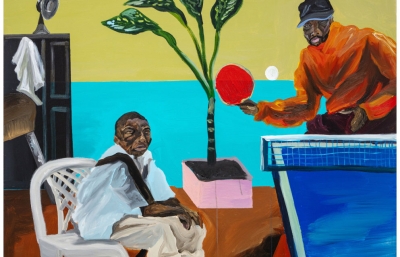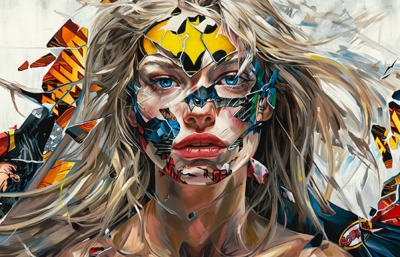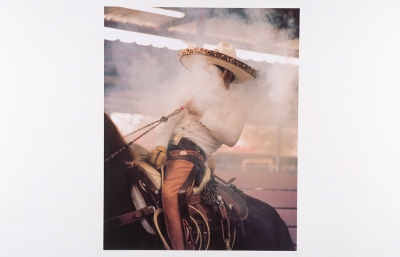Vito Schnabel Gallery is pleased to present Trey Abdella: Under the Skin, the gallery’s debut exhibition with the Virginia-born, New York-based artist. On view through January 13, 2024, Under the Skin is part of a two-venue presentation, coinciding with the debut of a major installation by the artist at David Lewis Gallery in New York. Featuring eleven new works that bridge the mediums of painting, sculpture, assemblage, and sometimes introducing operating mechanical elements, Abdella’s exhibition demonstrates his category-defying exploration of American culture and its collision of the familiar and the uncanny, the humorous and the unsettling. A sly storyteller, Abdella cultivates a relatable nostalgia in his works, drawing upon life’s wholesome trivialities and mundane aspects, electrifying them with a heightened sense of drama and dread. Bold in scale, unapologetically illustrative, and fervently colored, his latest works on view at Vito Schnabel Gallery narrate a story about the pitfalls and miseries to be found along the path of the American dream.
Trained as a painter, Trey Abdella muddies his hyperrealistic approach to painted imagery with compelling three-dimensional components that extend his canvas beyond the picture plane into a sculpted realm that combines found objects and the language of assemblage. Employing an array of techniques and a mash-up of materials such as acrylic, aqua resin, clay, foam, glitter, glass and mirrors, motorized fans, turf, and faux leaves, Abdella is innovative and deviceful — a technical experimenter — elevating the mechanics of craft within the practice of fine art. His work confronts the viewer with commonplace experiences that dredge up universal emotions often tied to an adolescence entrenched in nostalgia, evoking both hazy memories and distinct associations that can be disquieting. Abdella’s aesthetic invites engagement that borders on voyeuristic; in their specificity, the everyday events he depicts become stolen glimpses of intimate experience. The artist’s practice incites a personal way of looking at cultural rituals and sanctioned rites of passage that connect viewers through familiar experiences and the glitches of human memory.
The works on view in Under the Skin make reference to Abdella’s exploration of American culture through an anatomical lens: he seeks out and churns up deep-seated anxieties that lie below the surface, within the body. Exploring the flesh of the skin and the layers of the earth as membranes, boundaries, or mediums of passage between physical and psychological realms, he weaves feelings of sweetness and the seduction of nostalgia with dark, disruptive impulses that charge his narratives with psychological presence.
Abdella’s art thus demands a physical engagement of the senses. Scenting the gallery with the warm aroma of chocolate, Live Laugh Love (2023), for example, depicts a monumental portrait of a young girl, which Abdella has fashioned as a functional advent calendar. His subject’s aspect of girl-next-door innocence – her ordinary face that one might recall from the side of a milk carton – is undercut by the haunting association it calls forth. Popularized by the dairy industry in the United States during the 1980s-era of missing children campaigns, a terrified public was flooded with media advertisements and published statistics of notorious crimes of child- snatching, kidnapping, and murder. Meanwhile, the cheerful countdown to Christmas, usually celebrated by the small treasures or chocolates nestled away behind the doors of advent calendars has been replaced here by a horror meant to symbolize the underlying enervation of suburban life: truncated limbs and the gaping mouths of demons in hell populate each chocolate ‘window’ of the painting.
Other exhibited artworks, such as Six Feet Under (2023), showcase a highly technical experimentation – a tall, narrow composition adorned with cleats and a football helmet, cheerleaders jumping, and a field brimming with the lights, energy, and heroism of a big Friday night game. As the canvas stretches down the wall toward the floor, Abdella introduces a host of materials that sculpt and carve out the roots and layers of the earth beneath the action. He creates an illusionistic depth using rocks, clay, foam, resin, and fake grass to lead the eye to the skeletal remains of a dinosaur resting on a fossil bed. Within the dark humor of the scene lies the morbidity of its message that even the most memorable moments of our everyday lives will fade inevitably into anonymous decay.
Abdella pushes the limits of painting further in Time Doesn’t Heal All Wounds (2023), employing the paradigmatic image of a slice of homemade cherry pie. As an emblem of American summer and memento of simpler times, this work at first glance excretes the folksiness of familiar clichés – of families piling into wood-paneled station wagons and drives to idyllic lakeside summer vacations. But Abdella’s golden, flaky crust, sculpted from glass with pools of resin glimmering and glinting over sculpted foam, endows the oozing cherry filling with a menacing vibe, that is only heightened by the glistening silver piercing its flesh.



